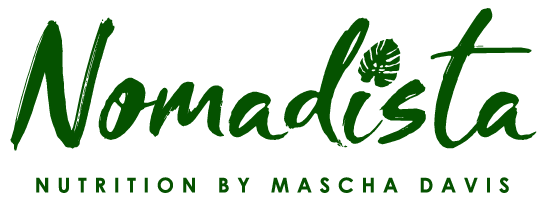Getting enough sleep is not always easy, and sometimes it is just impossible to get your 8 hours in! But as long as missed sleep doesn’t become a habit, it is OK to have one shorter night every now and then. Fortunately, there is a lot you can do to help your body get the best quality rest!
Nutrients
A diet rich in nutrient-dense foods will help ensure you get good zzz's. Here are some of the top ones for a good night's sleep:
Selenium, which is also essential for good immunity. It can be found it in seafood and whole grains (sardines are an excellent source!).
Vitamin C is not only important for sleep but can also protect your heart. There is plenty of it in fresh fruits and vegetables - aim for at least 7 servings each day.
Calcium is needed for good sleep because it helps the brain convent tryptophan to melatonin (the sleep-inducing hormone). So go ahead and drink your glass of warm milk (or almond milk) before bed.
Vitamin D can improve sleep efficiency. Almost every client I see in my office is low in Vitamin D! Spending time in the sun as well as eating whole eggs, fatty fish and fortified foods are ways to get this vitamin. I recommend supplementing if your lab results show you are low.
Lycopene, an antioxidant found mainly in tomatoes, helps you fall asleep faster.
Potassium is needed for cells to function normally. It also helps you sleep through the night. Potassium can be found in many fruits and veggies, like bananas or avocados. Bananas also increase levels of serotonin, which is needed to produce the sleep hormone melatonin!
Tryptophan is an essential amino acid. It also helps you produce melatonin. This amino acid can be found in turkey, eggs, or spinach.
Water! Water is the most important nutrient in the human body. Yet it is one of the most overlooked nutrients. Staying hydrated makes a huge difference in the quality of sleep.
Eating enough
This might surprise you, but some research suggests that not getting enough calories in, especially before bedtime, might negatively affect the quality and duration of sleep. A lack of variety and being on a diet is also associated with worse sleep quality. Loading up on nutrient dense foods and eating enough to meet your body's needs will help you sleep through the night. If you have questions about building healthy meals - meet with a Registered Dietitian.
Lights out!
This might not have much to do with food, however if you have problems falling asleep at night, it is essential to stay away from artificial light at least 30 minutes before bedtime. Melatonin production is induced by darkness. So, if you keep on looking at a bright screen, you might never feel fully tired.
Sleep is essential for health. It influences your physical and mental health. A lack of sleep can also make you overeat without noticing. Not to mention that being constantly tired is just not fun! Although eating right and turning the lights off early enough can help your sleep, there are other factors involved.
Exercise can increase the quality of sleep. But timing is important when it comes to physical activity. Try to avoid exercising three hours before hitting the hay. Getting your heart rate up so close to bedtime could make it harder to fall asleep and might leave you feeling restless.
If you feel like you have tried everything and still can’t sleep, consider seeing a specialist about it. Good sleep can definitely change your life!

